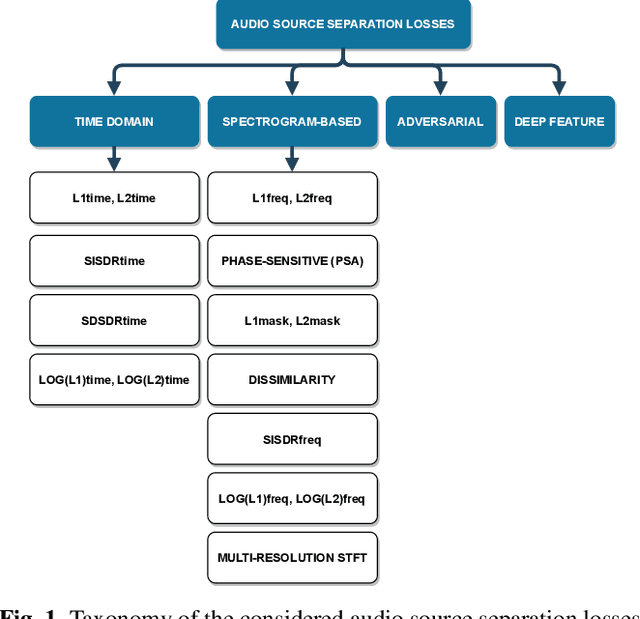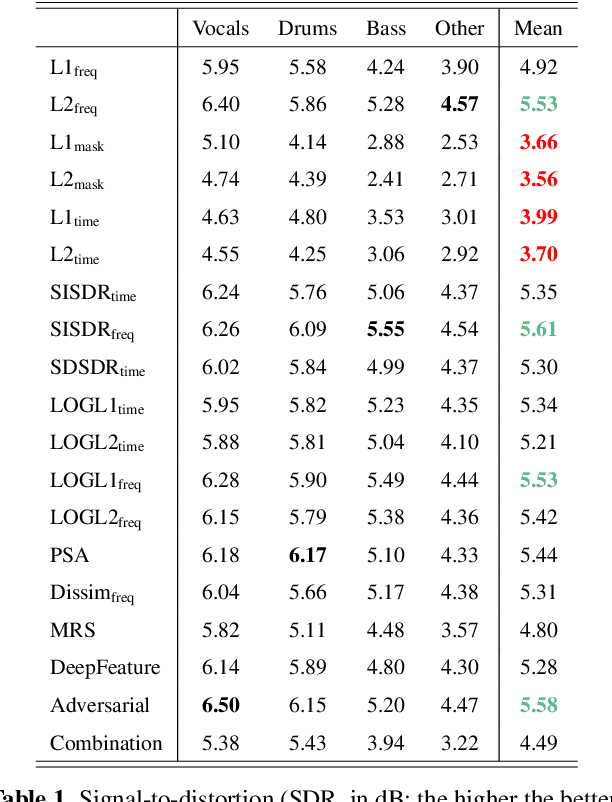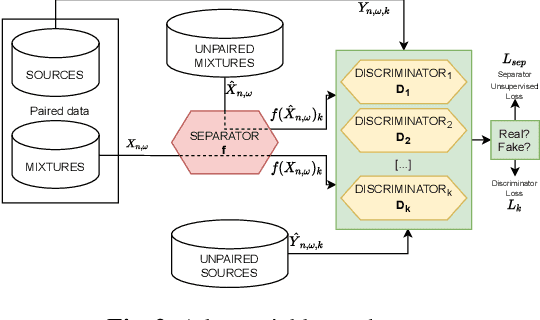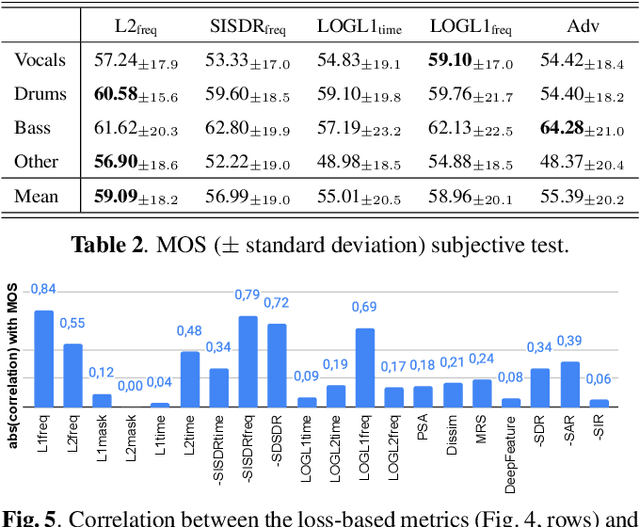Enric Gusó
An objective evaluation of Hearing Aids and DNN-based speech enhancement in complex acoustic scenes
Jul 24, 2023Abstract:We investigate the objective performance of five high-end commercially available Hearing Aid (HA) devices compared to DNN-based speech enhancement algorithms in complex acoustic environments. To this end, we measure the HRTFs of a single HA device to synthesize a binaural dataset for training two state-of-the-art causal and non-causal DNN enhancement models. We then generate an evaluation set of realistic speech-in-noise situations using an Ambisonics loudspeaker setup and record with a KU100 dummy head wearing each of the HA devices, both with and without the conventional HA algorithms, applying the DNN enhancers to the latter. We find that the DNN-based enhancement outperforms the HA algorithms in terms of noise suppression and objective intelligibility metrics.
On loss functions and evaluation metrics for music source separation
Feb 16, 2022



Abstract:We investigate which loss functions provide better separations via benchmarking an extensive set of those for music source separation. To that end, we first survey the most representative audio source separation losses we identified, to later consistently benchmark them in a controlled experimental setup. We also explore using such losses as evaluation metrics, via cross-correlating them with the results of a subjective test. Based on the observation that the standard signal-to-distortion ratio metric can be misleading in some scenarios, we study alternative evaluation metrics based on the considered losses.
 Add to Chrome
Add to Chrome Add to Firefox
Add to Firefox Add to Edge
Add to Edge